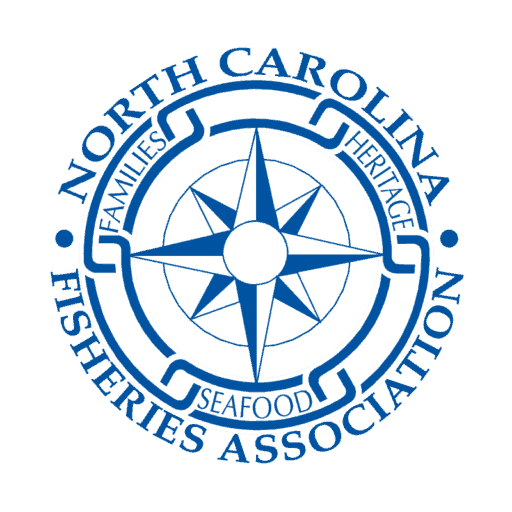Once again, Area Closures for Shrimp Trawling will be discussed by the Commission
On January 17 2024, the Habitat and Water Quality Advisory Committee (AC) met to revisit the issue of “protecting” Submerged Aquatic Vegetation (SAV) through shrimp trawling area closures, as directed by the Marine Fisheries Commission two years ago.
Habitat and Water Quality Advisory Committee
During the meeting the AC was presented with multiple DMF recommendations for area closures in or near, what the Division defines as “potential SAV habitat”. “Potential SAV habitat”, as I understand it, is not necessarily where SAV currently exists, but also where it was once documented to exist, based on maps from 1981-2021. According to DMF staff, their goal is to protect and restore SAV to its historic extent, approximately 191,000 acres based on current knowledge.
The Divisions recommendations were met with a wide range of questions/concerns from AC members. Questions including the realized benefits to SAV from past closures and whether future closures would accomplish their intended goals, and rightfully so. Over decades of management, the State has already permanently or seasonally closed over 1.2 million acres of our estuarine waters to shrimp trawling.
Unfortunately, while the State has the authority to close areas to trawling, they lack the ability to quantify the benefits, if any, to SAV from either past or future closures. DMF acknowledges that closing areas to trawling allows them to calculate how many acres are “protected” but the true benefits to SAV are impossible to quantify, and in the absence of trawling SAV growth may continue to be impaired by a multitude of other factors.
Simply put, it’s much easier to say SAV has been “Protected” than it is to prove!
The truth is, we all recognize the importance of SAV and the critical role it plays, but true SAV protections will deliver verifiable results that can be quantified, something trawl closures have yet to accomplish.
Perhaps, if the State had dedicated the same number of resources towards monitoring and managing other activities as they have to commercial fishermen, true protections for critical habitat, such as SAV, might have been realized by now. But, they haven’t, and here we are again asking fishermen to take one for the team, with nothing in return. Not even an estimate of what will be gained through area closures or lost if we fail to act!
When will the State realize that regulation, without justification, is persecution?
Despite their concerns, the Habitat and Water Quality AC, with prompting from their Chairman and Commission member Doug Rader, did vote to support the concept of using area closures to protect SAV. That said, this issue will be on the agenda for the February 21-23, 2024 MFC meeting and I encourage everyone to provide feedback to the Commission.
As I understand it, the Division may be modifying their recommendations and requesting that the Commission send this issue back to the standing advisory committees for public comment, if they choose to move forward.
Hopefully true collaboration with stakeholders will also be part of this process in the future, as was directed by the Commission with the approval of Amendment 2.
Glenn Skinner
NCFA Executive Director
Speckled Trout Advisors Needed
The NCDMF is looking for commercial and recreational fishermen, scientists and other interested parties to sit on the Spotted Seatrout Fishery Management Plan Advisory Committee.
The committee will assist the division in developing Amendment 1 to the N.C. Spotted Seatrout Fishery Management Plan. The Division will hold an in-person, workshop-style meeting that will allow scientists, managers and stakeholders to collaborate on drafting potential spotted seatrout management measures.
The division is looking for individuals with expertise in the spotted seatrout fisheries. Commercial and recreational fishers from all coastal regions are desired. The division would also like to include on the advisory committee scientists as well as individuals or non-governmental organizations willing to discuss stakeholder interests and concerns.
To be qualified to serve on the committee, applicants may not have had a significant fisheries violation within the past three years.
Interested individuals must be available to attend and actively participate in the workshop over several days the week of April 22, 2024. The workshop will take place in New Bern during normal business hours. Participation includes reviewing documents to provide input to the Division for consideration to refine management options in draft Amendment 1.
Advisers who complete the necessary paperwork will be reimbursed for expenses incurred in relation to their official duties.
Applications are available online here, at Division of Marine Fisheries offices, or by calling 252-515-5527 or 800-682-2632. Applications should be returned by Feb. 9, 2024, by email to MFC@deq.nc.gov or by mail to N.C. Division of Marine Fisheries, P.O. Box 769, Morehead City, N.C. 28557, Attention: Rick Crawshaw.
If you have questions, contact the Fishery Management Plan Coordinator, Corrin Flora, at Corrin.Flora@deq.nc.gov or 252-515-5524 or Rick Crawshaw at 252-555-5527.

